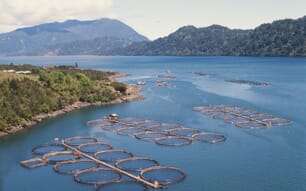Major oil discharges such as the one from the drilling rig Deepwater Horizon or the grounding of the Full City off Langesund, Norway, have wrought havoc on the natural environment.
The research project Toxprof examined the impacts of oil discharges along the coast of Europe. The researchers studied the effects of common Arabian light crude as well as oil from the Norwegian Ekofisk field, in addition to the diesel fuel commonly used by ships.
The experiments were carried out at the University of Oslo’s marine biological station at Drøbak, located on the Oslo Fjord. Seawater was pumped through coarse sand containing oil that was partially broken down by UV radiation. The oil then floated to aquariums containing cod, mussels or spotted goby. In this way the researchers could control the concentrations of the oils’ environmentally hazardous components.
“We tested how the broken down oils affected cod, mussels and spotted goby ,” says Ketil Hylland, Professor of Toxicology at the University of Oslo’s Department of Biology.
“From the experiments we were able to work out clear profiles for the impacts of the selected oils, yielding some important answers as to which substances are most toxic.
"We measured a variety of biomarkers in the gills and liver of the cod and the digestive glands and gills of the mussels. The trials showed that the effects changed over time and lasted more than three weeks."
Using different methods, the project participants observed effects that clearly demonstrated that the contaminants in oil can potentially lead to DNA damage and cause oxidative stress in the experimental organisms.
The research clearly indicates that even though the oil disappears from the seawater surface and beaches after a spill, the toxic substances in oil can still cause adverse effects long afterwards. Researcers also found that the oil can become more toxic and harmful during the breakdown process.
"Many sites may experience negative impacts for 15 to 20 years following a large-scale oil spill, as was the case with the Exxon Valdez in Alaska in 1989. Oil can entail major ecological consequences while breaking down, so the seriousness of oil spills must not be downplayed just because the damage is no longer visible to the naked eye,” said Professor Hylland.
Oil Spills Cause Oxidative Stress For Up To 20 Years
NORWAY - Despite not being visible to the human eye, the effects of oil spills can affect fish DNA, and cause oxidative stress for years after, according to an international collaborative project.


